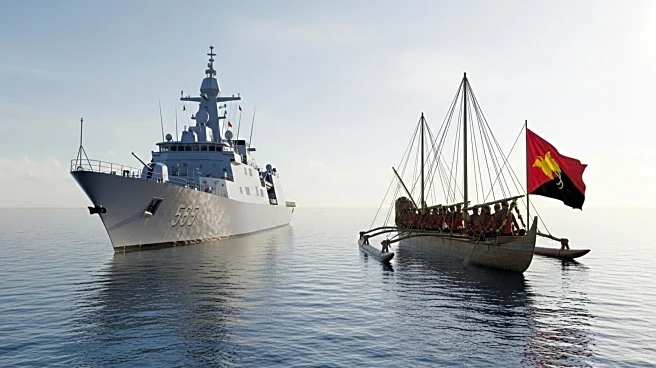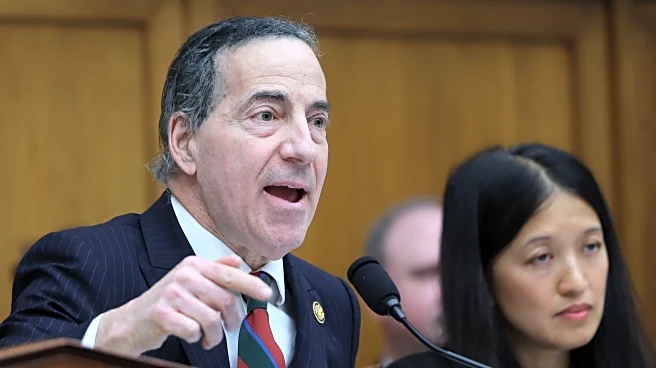What's Happening?
Australia and Papua New Guinea are set to integrate their defense forces under a new security pact, aiming to curb China's growing influence in the region. The agreement, to be signed by Australian Prime Minister Anthony Albanese and Papua New Guinean Prime Minister James Marape, marks a significant upgrade in defense relations between the two countries. The pact will allow citizens of both nations to serve in either military, with Australia offering citizenship as an incentive for Papua New Guineans to enlist. This move comes amid concerns over China's increasing sway in the Pacific, particularly through police training in several island nations. The signing of the pact was delayed due to protests in Papua New Guinea over a separate U.S. security deal, which raised sovereignty concerns.
Why It's Important?
The defense pact between Australia and Papua New Guinea is a strategic move to counter China's expanding influence in the Pacific region. By strengthening military ties, Australia aims to solidify its position as the preferred security partner in the area. This development is crucial for regional stability, as it addresses the growing strategic competition between U.S. allies and China. The integration of defense forces could enhance interoperability and mutual support, potentially deterring China's influence. The pact also reflects broader geopolitical dynamics, where Pacific nations are increasingly cautious about aligning with major powers, balancing sovereignty concerns with security needs.
What's Next?
Following the signing of the defense pact, Australia and Papua New Guinea will focus on implementing the agreement, including the integration of military forces and citizenship incentives. Australia may continue discussions with other Pacific nations, such as Fiji and Tonga, to advance bilateral defense cooperation. The pact's impact on regional alliances and China's response will be closely monitored. Additionally, Australia will seek to finalize a security and economic treaty with Vanuatu, addressing concerns over infrastructure funding from China. The evolving security landscape in the Pacific will require ongoing diplomatic engagement and strategic planning.
Beyond the Headlines
The defense pact highlights the complex interplay of sovereignty and security in the Pacific region. Papua New Guinea's protests over the U.S. security deal underscore the sensitivity of external influence on national sovereignty. The agreement's wording around exclusivity could affect regional dynamics, as Pacific nations navigate strategic competition between major powers. Australia's offer of citizenship as a military enlistment incentive raises ethical considerations about recruitment practices. The pact may also influence regional perceptions of Australia as a security partner, potentially affecting future diplomatic and economic relations.










